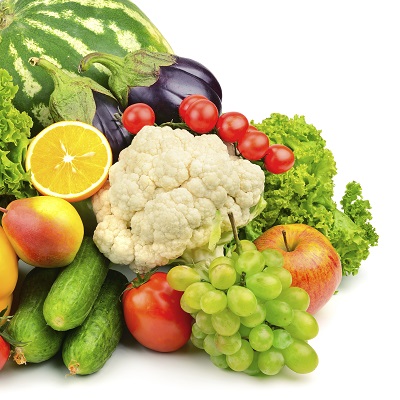When it comes to eating and nutrition, the expression “garbage in, garbage out” says it best as what a person chooses to eat will impact their health. Eating too much of the wrong foods (including processed meats, soda, snack-foods and candy) and not enough of the right foods (recommended by the United State Government’s Nutrition Plate) can deprive a person of important vitamins and nutrients and that can result in a myriad of problems including obesity, diabetes and dental problems including tooth decay, cavities and gum disease. Individuals concerned about the latter should consider laying off the doodles and the whizzes and eat foods high in dietary fiber instead.
Dietary fiber (AKA roughage) is the indigestible portion of plant foods and there are countless natural and delicious foods naturally rich in the substance (both soluble and insoluble). Although there are plenty of manufactured foods that feature the added addition of fiber, eating natural foods (including fruits, vegetables, legumes, whole grains and nuts) rich with the compound can have amazing health benefits.
Fiber for your Smile
Having an attractive smile filled with healthy teeth is a valuable asset as it can help increase the odds of romantic attraction as well as earning a bigger paycheck. The process of getting and maintaining oral health is a lifelong obligation involving practicing oral hygiene, seeing a dentist with regularity and eating a nutritious diet. For the latter, that includes eating a diet filled with natural high-fiber foods as research has found that it can reduce the odds of tooth loss by around 30 percent.
American researchers followed the health progress of over 600 male veterans for almost a quarter of a century. Based on the, findings it was concluded that older men who ate a diet filled with fiber-full foods (such as bananas, apples, oranges, blueberries, sweet potatoes, peanuts, whole grains and leafy greens including broccoli, Brussels sprouts and spinach) benefited from a “30 percent lower likelihood of lost teeth and a 24 percent lower risk of bone loss associated with receding gums,” (http://www.reuters.com/article/2012/02/24/us-study-gums-idUSTRE81N1MM20120224).
Additional findings showed that men over age 65 who reported eating more fiber rich fruit also benefited from having lowered their odds of gum recession by 5 percent lower risk of gum recession, jaw bone erosion by 14 percent lower risk and reduced the chances of tooth loss by 12 percent.
Fiber for Weight Loss and Oral Health
Countless Americans are losing their battle with the bulge. Being obese increases the odds of health conditions such as diabetes and heart disease, can reduce the earning potential for a person and will negatively impact dental health. Natural fiber can help individuals shed the pounds and in turn, boost dental health.
Hunger is a dieters worst enemy; that condition is controlled by numerous factors related to eating and a meals balance of fiber fats, carbohydrates, protein and water content are part of the equation. Various studies have shown that foods with a high-fiber content will result in a satiated feeling and more satisfaction with a meal. Plus, since natural fiber dense foods also take more time to chew, a brain will have enough time to process that full feeling and make an individual feel like slowing down and eating less.
That process of dropping the weight will also help with various dental problems in both children and adults. Research published by the Endocrine Society has indicated that 28 percent of children with tooth decay also tipped the scale. Scientists at Case Western Reserve University School of Dental Medicine have shown that heavier adults stand a greater risk for developing periodontal disease then their lighter counterparts. In both cases, the hypothesis is that obese people have higher levels of dental plaque than their leaner counterparts, and that plaque is the main cause for the most common dental problems including cavities, tooth decay and gum disease.
The Right Way to Get More Fiber
No matter how many supplements are available to consumers, eating fiber dense foods, not relying on powders, pills or bars, is the best way to start incorporating more of the good stuff into your diet. Individuals just jumping onto the diet bandwagon are advised to go slowly as too much too soon can result in bloating and abdominal discomfort. Instead slowly incorporating the right foods day by day will make adjusting to the change easy.
Why wait a moment longer when you can start that process today. Instead of drinking a glass of apple juice, go for the entire piece of fruit (plus apples are also considered organic tooth whiteners). For breakfast, go for high-fiber cereal topped with fruit such as banana slices, berries or raisins. Make your lunchtime sandwich on a whole grain bread, opt non processed fillings (like roasted turkey breast, roast beef, home-made tuna salad or hummus) and top it off with crisp lettuce and fresh spinach leaves and instead of having chips on the side, have a bowl of hearty vegetable soup featuring whole pieces of veggies.

